-
ABOUT US
-
ACADEMICS
Curriculum Program
Departments
- English
- High School Chinese
- Primary and Junior School Chinese.
- High School Mathematics
- Middle School Mathematics
- Primary School Mathematics
- Music and Fine Arts
- Physical Education
- Physics
- Chemistry
- History and Geography
- Physical Science and Optional courses Department
- Middle School Biology
- High School Biology
- Social Sciences
- Computer Science
- Courses in Primary School
Achievements and Matriculations
College Counseling
Science & Technology Innovation Contest
Subject Competition
-
ARTS
-
ATHLETICS
-
AT SHSID
SHSID ∣ TIMES
PTSA
Club Exhibition
- 龙吟社
- Live 2 Drama
- Choir
- Hip-pop Dance Club
- The Primary School Dance Troupe
- Symposiums Club
- Biology Workshop
- You Shan
- VEX Robotic
- Peking Opera Club
- Baseball Club
- Model United Nations
- The World Scholar’s Cup
- Future Problem Solving Club
- United States Academic Pentathlon
- OM Club
- AMC Club
- Music for Patients
- SHSID Gazette
- Smile Charity
- Cultural Moments
- SciAcademy
- Stem Doge Alliance
- Chinese Debate Club
- IAA
- Mock Trial Club
- Zhengming Club
- Furry Friends
- GT-Racing
- Village Radio
- IMMC Club
- Creative Design and Intelligent Fabrication
- Future City Research Project
- ECOCAP
- AdvocaSEA
- SPDC
- Medishine
- Floorball Club
- Animusic MTC
- Wings Up
- All Booked
Health and Wellness
Campus Safety
Cafeteria Service
-
ADMINISTRATION
-
ADMISSIONS
-
ALUMNI
Alumni Information
Honors Students
- Class of 2025
- Class of 2024
- Class of 2023
- Class of 2022
- Class of 2021
- Class of 2020
- Class of 2019
- Class of 2018
- Class of 2017
- Class of 2016
- Class of 2015
- Class of 2014
- Class of 2013
- Class of 2012
- Class of 2011
- Class of 2010
- Class of 2009
- Class of 2008
- Class of 2007
- Class of 2006
Who Studied at SHSID
SHS Foundation
-
DOCUMENTS
Recent Math Events
The high school Math department always values the cultivation of students’ application competence and the collaboration of in-class and extra-curricular activities. Clubs assist students’ competition performance; alumni pass on inspiration and share experience; open classes and class polishing boost the optimazation of teaching-learning dynamics… This spirit inspires teachers and students to calmly handle all kinds of challenges and explore new levels of teaching and learning.
The math modelling club has stepped into its tenth year now. Ten years of hard work witnessed continual glory. High school students have once again entered the global judgement of the International Mathematical Modeling Challenge. With the organization of academic advisors and based on solid regular practice, 2 top teams managed to participate in the final presentation competition of the Regional Round and the International Round of Greater China Region. In the final presentation, the two teams clearly explained their modeling logic to the judges with fluent language, concise ideas, and exquisite presentations, and answered the questions from the judges calmly as well. In the end, the two teams stood out from nearly 800 teams and won the highest honor – the Outstanding award in both rounds. What is even more worthy of congratulations is, due to the outstanding performance in the international competition, the team IMMC22468942 is selected be one of the two teams to represent Mainland China schools, to participate in the international global judgement round and receive evaluations from top international judges. This is a continuation of our school’s success since another SHSID team had participated in the international global judgement last year.
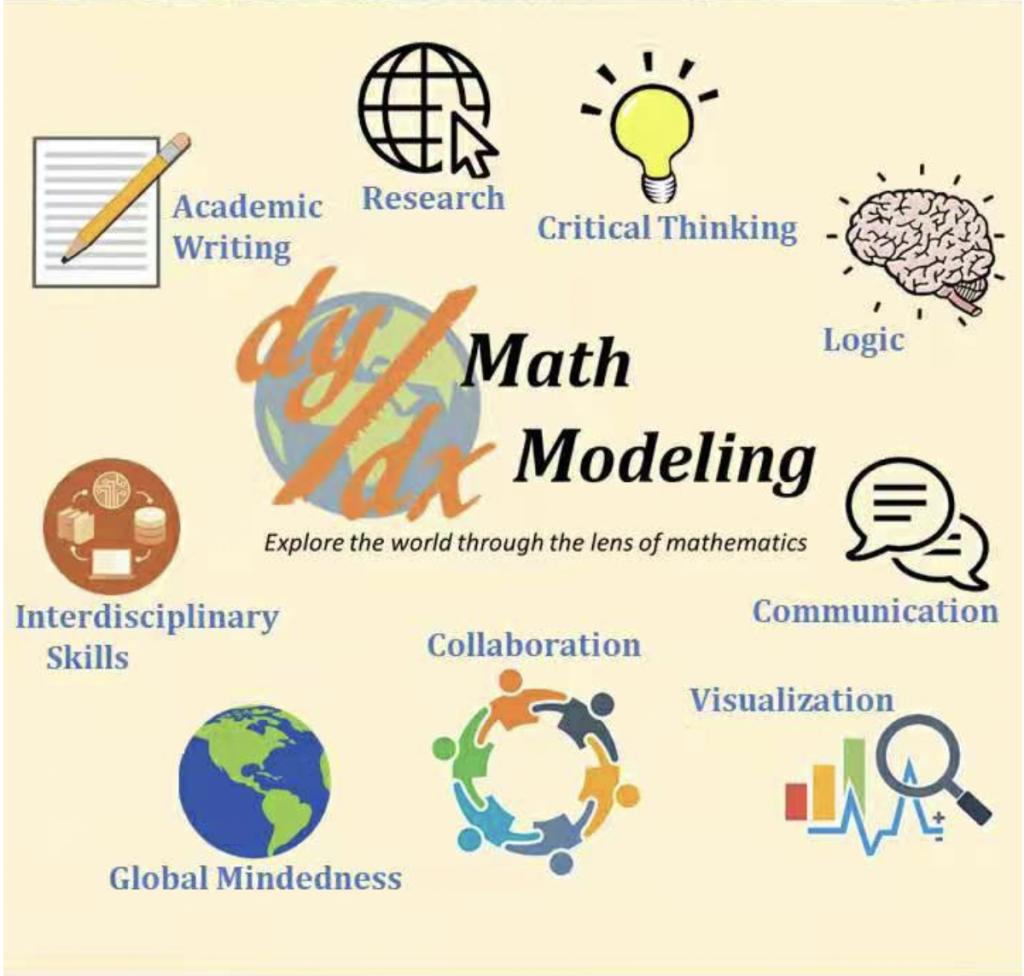
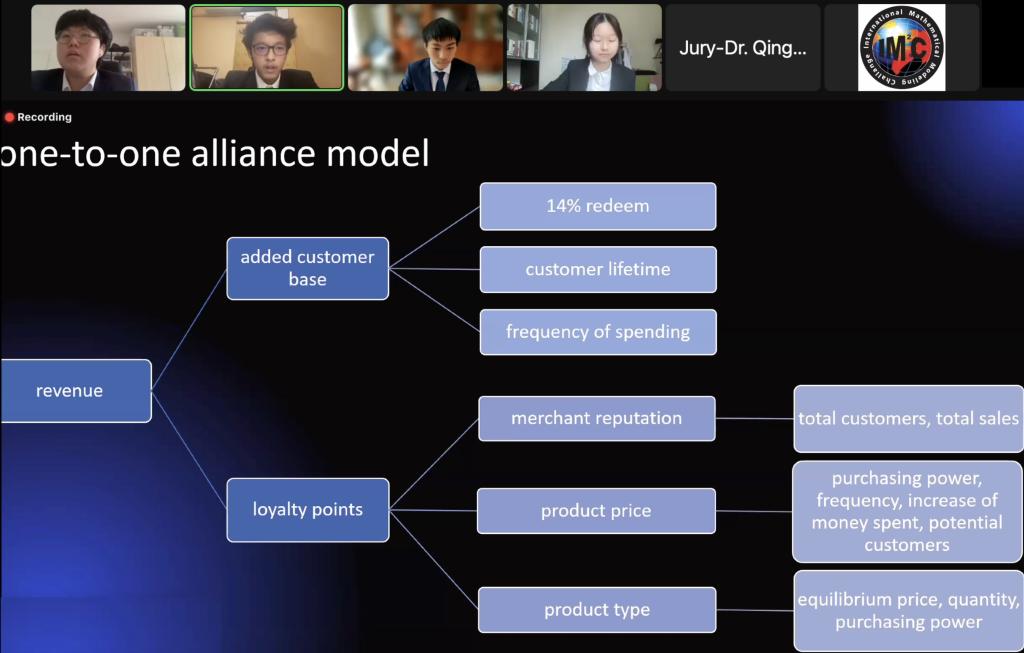
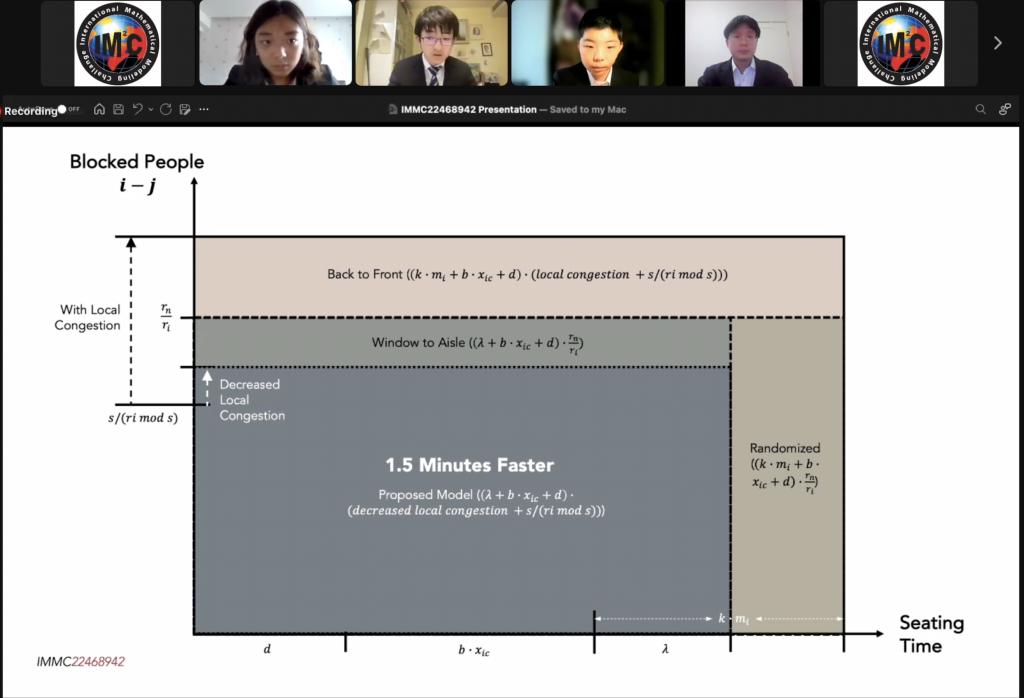
Apart from excellent competition performance, the good news that one of our alumni shared is also exciting! Michael Lingzhi Li recently completed a PhD in operations research and is currently a tenure-track assistant professor at Harvard Business School. During the lunchtime of May 24th, the Math Modelling Club had the great honor to invite Dr. Li to give current SHSID students a lecture titled “From Modeling to Action.” Ten years ago, when he was a high school student, Michael Li founded the Math Modeling Club in SHSID. In the past ten years, he has developed in a path that would lead him to become a modeler for life. In his lecture, Dr. Li introduced students to DELPHI, an epidemiological model he has participated in building since the start of the COVID-19 pandemic, and walked the students through many aspects of math modeling in the real world that students previously have not considered. In the real world, math modelers not only focus on translating a problem into mathematics, but also work as communicators to gather information about the needs of society and provide useful output. Students learned how critical it is to be able to communicate mathematical models in simple ways to convince people with little background in mathematics. Dr. Li also provided useful advice on how to think of math modeling and how to approach math modeling problems. He suggested that students should treat math modeling as a toolbox. When solving problems, students should focus on their goal instead of starting with what mathematical tools they should use. Dr. Li’s lecture and Q&A benefited students passionate about the application of Math a lot.
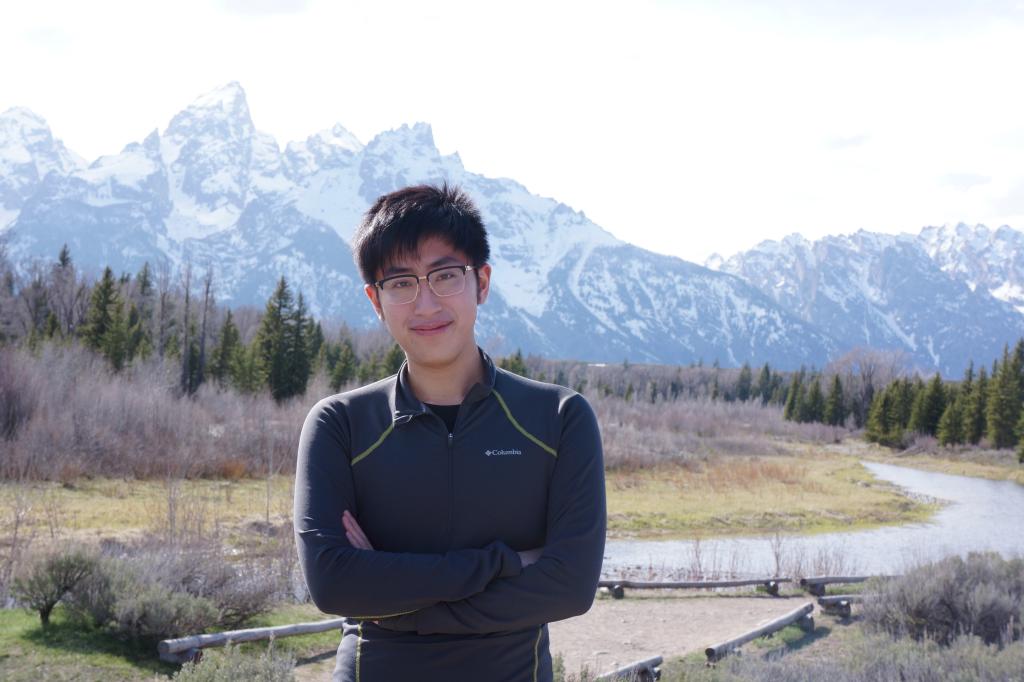
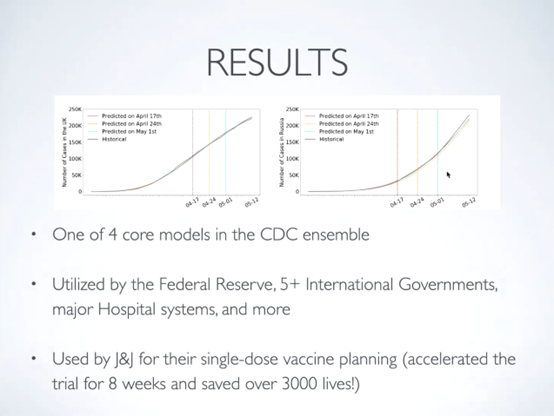
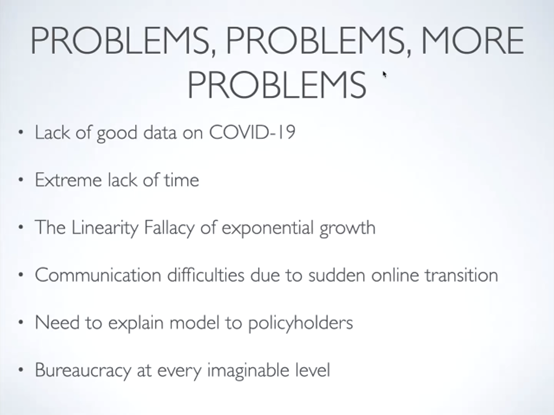
In regular teaching practice, the high school Math department emphasizes on the application of Math, too. On May 17th, two teachers in High School Math Department gave an online open class respectively for Grade 9 students. As online teaching differs a lot from regular offline teaching practice, the teachers designed, adjusted and integrated teaching contents before class based on their understanding of student profiles, and utilized online tools to realize harmonious teacher-student vibe and effective in-class interaction. Ms. Zhu’s open class was on determining the center of a circle. Around this topic, she guided students to solve practical problems with critical thinking based on the flexible use of the theoretical knowledge, mathematical software and practical tools. This class linked before-class, in-class and after-class holistically and motivated students to be highly involved. Mr. Hong’s open class was on the exploration of Apollonius circle and its properties. He set up step-by-step questions and guided students to use the online tool Geogebra to make reasonable conjectures, prove their conjectures and then summarize the properties. This class took into consideration the characteristics of hybrid learning class. Student exploration played a dominant role in this class. The design of the class showed the cultivation of students’ backward thinking and critical thinking.
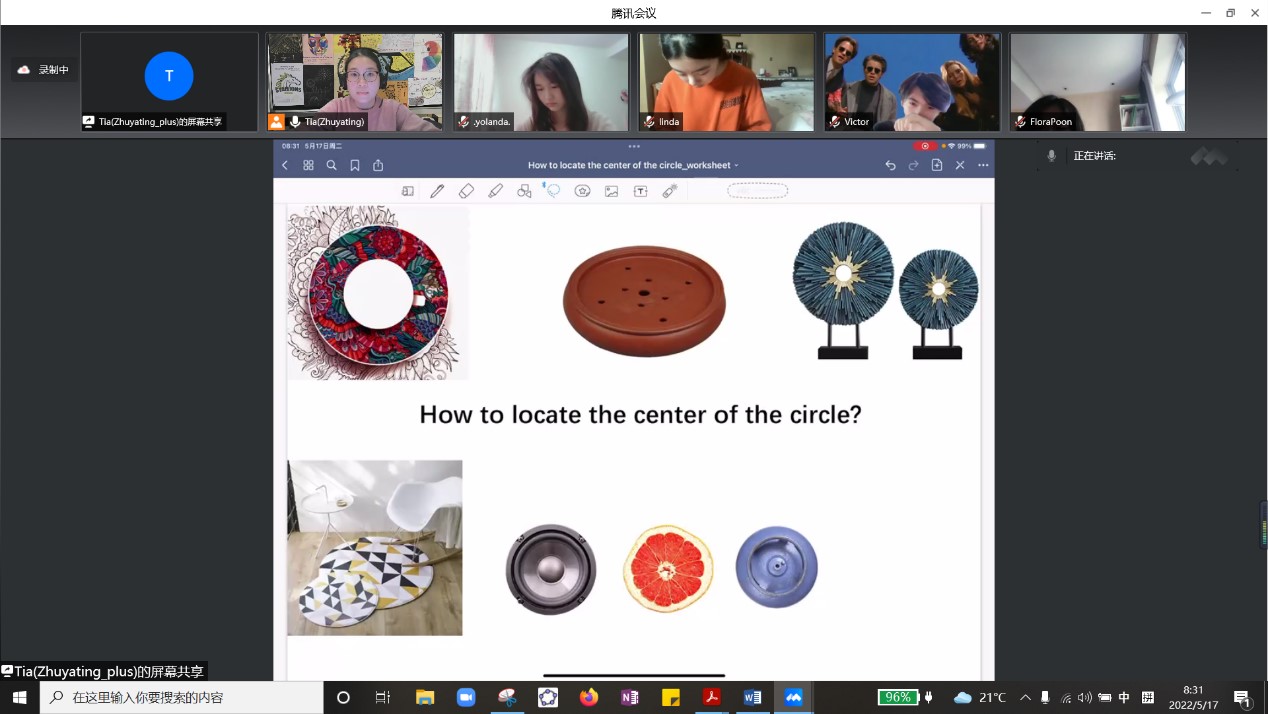
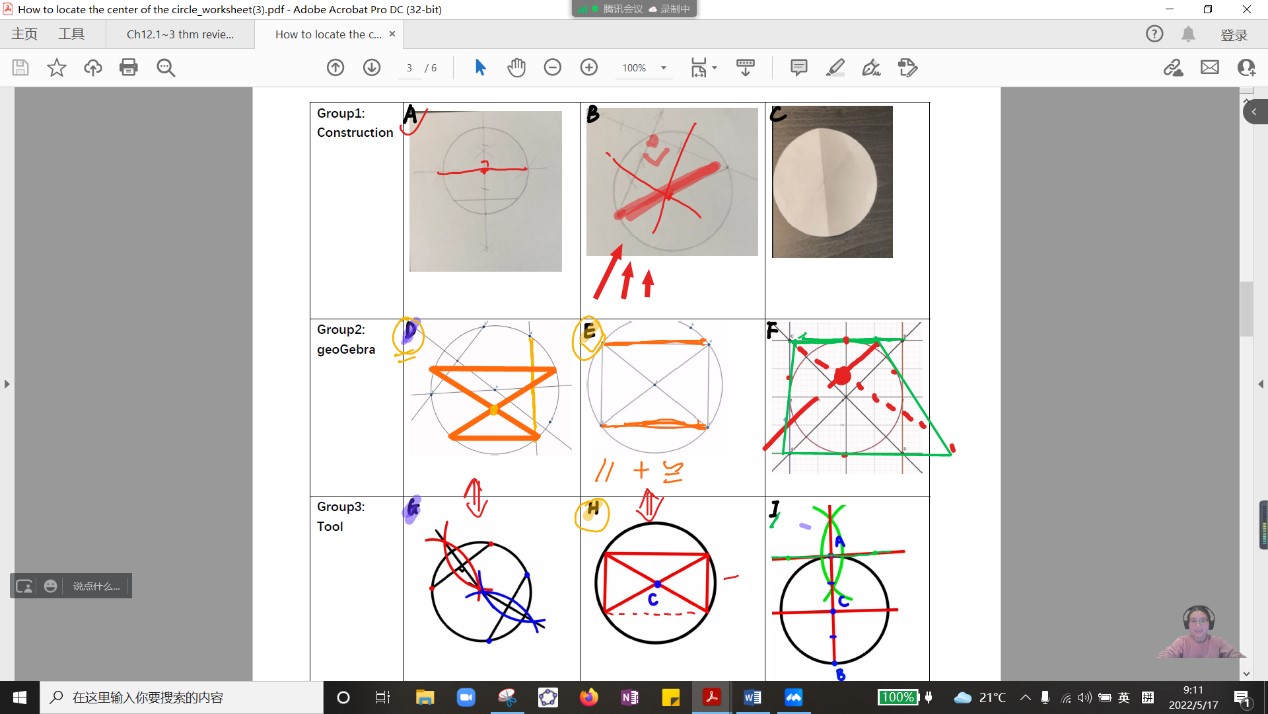
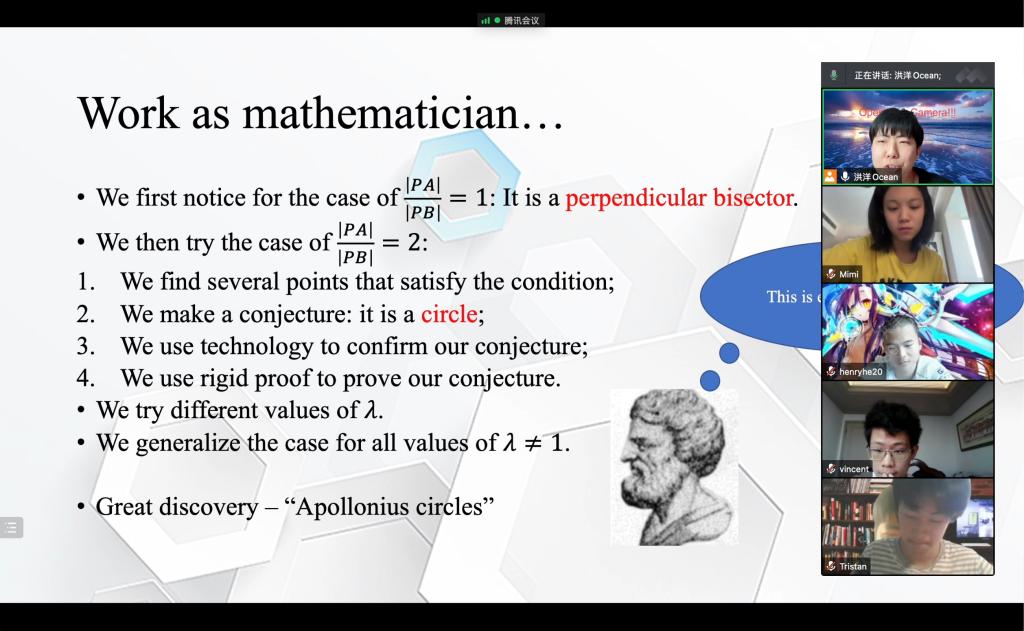
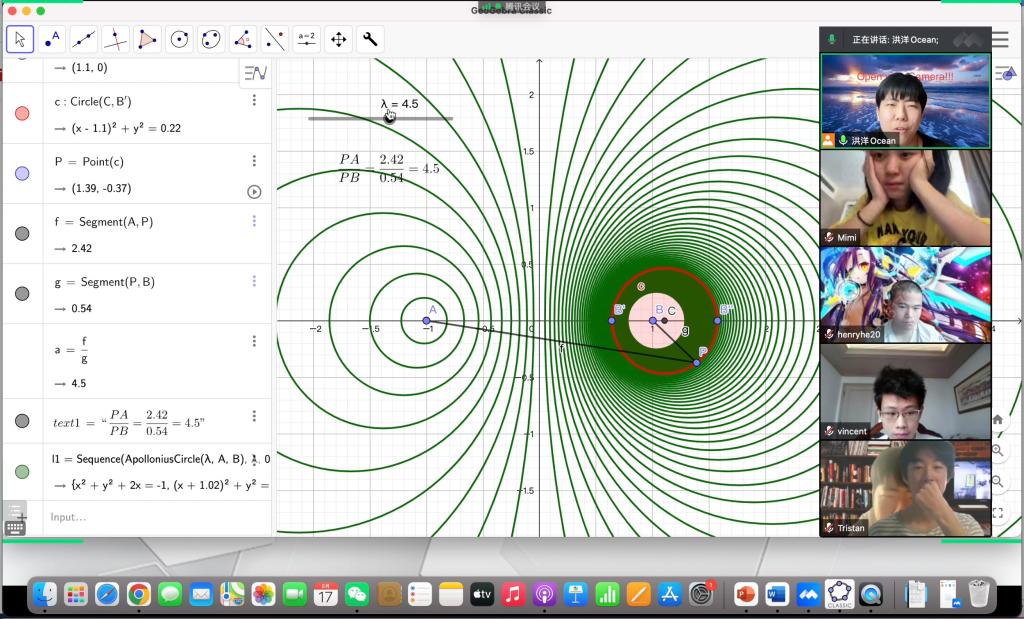
The wide application of Math is one of the drives of the development of this subject and is also one of the learning approaches of it. “Apply what is learnt”, the teachers and students will carry on with collaboration, exploration and advancement.
(Written by Mia Yuan, Mike Chen, Ivan Junior Yuan Pictures by: Mingxin Zhang, Michael Li, Yating Zhu, Ocean Hong Reviewed by Qian Zuo)